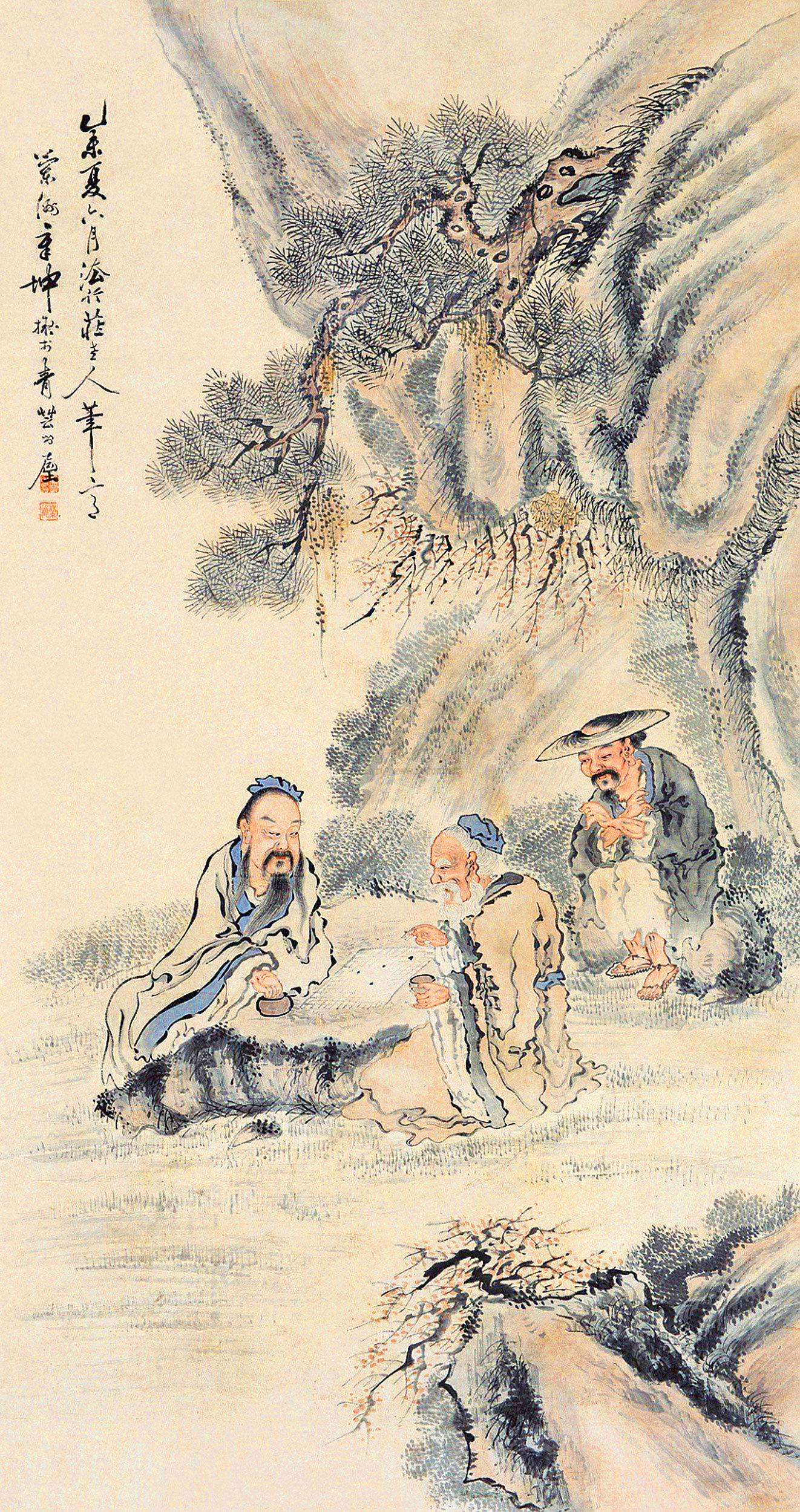More than a game, weiqi acts as cultural metaphor

Playing weiqi and sitting in seclusion among mountains and forests is a typical theme of traditional Chinese arts
Go, or weiqi, which literally means “encircling game,” is an abstract strategy board game for two players. The aim is to surround more territory than the opponent. As a game of strategy, weiqi has been popular in China ever since it was invented more than four millennia ago.
There are only two kinds of playing pieces: black stones and white stones. Though its rules are relatively simple, the game contains enormously complex permutations and profound depth of strategy.
Weiqi has a long history. We are certain that by the late Spring and Autumn Period (770-476 BCE), weiqi had become popular in China. However, the Shiben or the Book of Origins compiled in the pre-Qin period ( -221 BCE) which recorded imperial genealogies from the mythical ages down to the late Spring and Autumn period, attributes the invention of weiqi to the mythical Emperor Yao.
According to the Shiben, Emperor Yao invented weiqi to educate his son Danzhu. This could be considered as an attempt to demonstrate the philosophical connotations of weiqi by elevating its origins beyond mere mind games.
Historians believe that the black and white stones in weiqi are interlinked with the concepts of yin and yang from the I Ching. The growth and decline of the forces of yin and yang are seen in the number of yang yao (unbroken lines) and yin yao (broken lines) in a hexagram. In this way, a rigorous symbol system is established based on two simple lines: broken and unbroken.
In addition to the dialectical relationship between broken and unbroken, weiqi also contains dialectical relationships between abandonment and capture, disposition and momentum, internal and external elements, weakness and strengths. The simple factors of black and white stones, demonstrate complex changes and profound philosophy.
Weiqi has two opposing elements: contention and leisure, which shows a similar structure to the life choices of ancient Chinese intellectuals: serving as an official or living in seclusion. Correspondingly, weiqi has cultural connotations in two quite opposite dimensions.
Due to this nature, analogies are frequently drawn between the laws of weiqi and political, military or diplomatic issues. This view of weiqi tended to be adopted mostly by those who served the nation in imperial courts or governments.
Li Gang (1083-1140), a well-known minister in Northern Song Dynasty wrote in one of his memorials to the throne: “It is like playing weiqi. One poor move followed by another bad move, this is called self-defeating. It will be impossible to win.”
Li Gang was a fun of the game and also had a good comprehension of its strategies. He frequently illustrated the principles of political and military decision-making by quoting the strategies of weiqi.
After the Rebellion of An Lushan and Shi Siming (755-763) in the Tang Dynasty was put down, several warlords rose to power. Du Fu, the most prominent poet in Chinese history wrote that “I heard that the situation in Chang’an now is like playing weiqi.”
Numerous cultural references have also been drawn from the leisurely aspect of weiqi. For generations, the game has been seen as a means of associating with friends and transcending beyond worldly pursuits of positions and fortunes. Consequently, weiqi is also called zuoyin which means sitting in seclusion and shoutan, which means talking with one’s hands. For some intellectuals, playing weiqi is elegant, and represents the opposite of worldly matters. Winning or losing is never in the minds of the players. These people pursue a leisurely state of mind, free from stress.
Su Shi, a prominent intellectual in the Northern Song Dynasty, despite not being good at weiqi, wrote that once he watched games between his son and a friend for an entire day and never felt bored. “I heard only the sounds of weiqi stones touching the board among the old pine trees and running water,” he said.
Qi Xiashu is from the Hengshan Academy.
